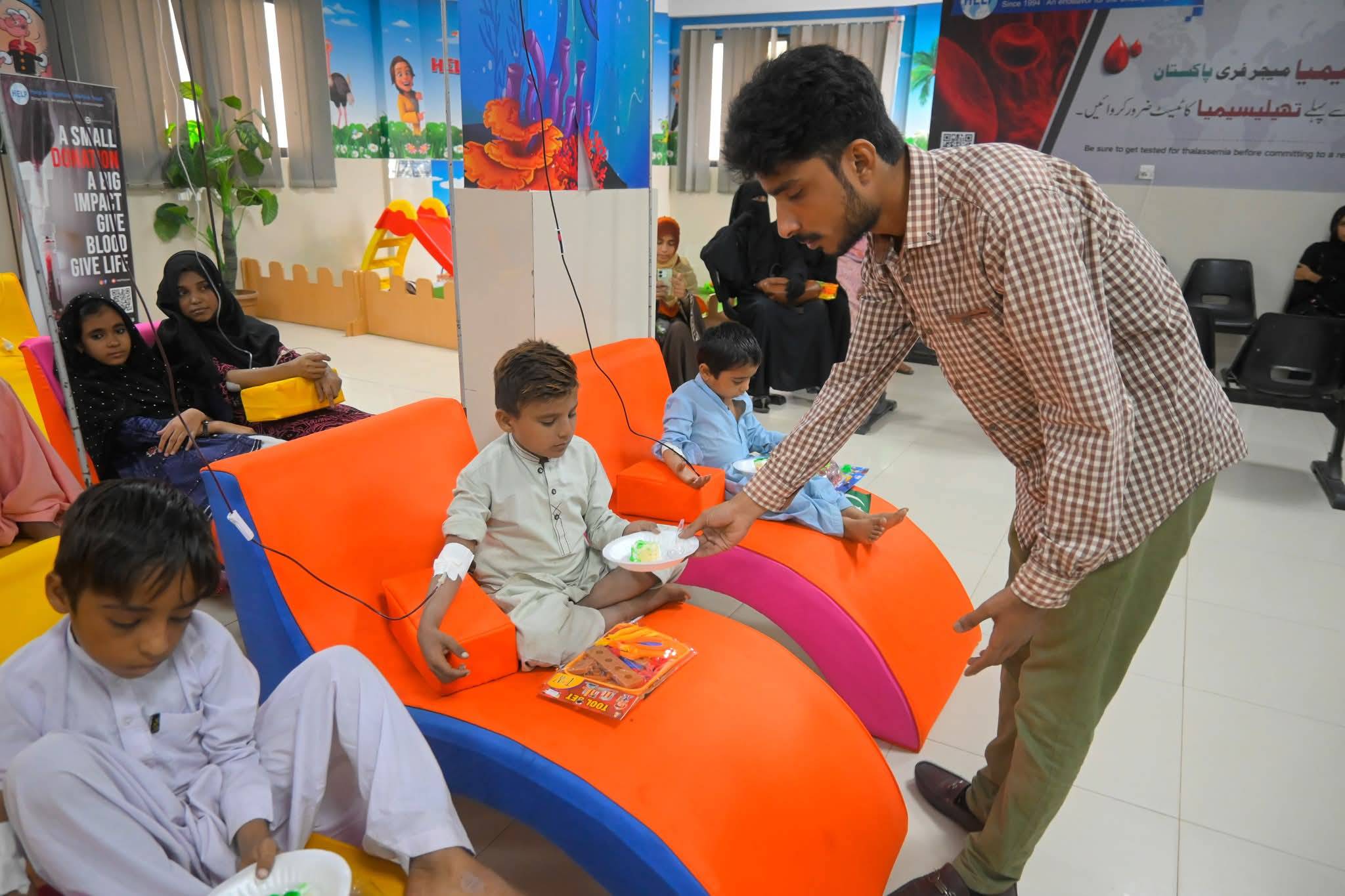
Thalassemia is a genetic blood disorder that weakens the body’s ability to produce healthy red blood cells and hemoglobin. As a result, patients experience severe anemia, fatigue, and require regular blood transfusions to survive. Across the world, millions are affected, but the situation in Pakistan is alarming—thousands of children are born every year with Thalassemia, making it a national health challenge.
Causes of Thalassemia
Thalassemia is not caused by lifestyle, food, or infections—it is inherited. If both parents carry the Thalassemia trait, there is a 25% chance their child will be born with the disease. Unfortunately, lack of premarital blood screening and insufficient awareness campaigns have allowed this disorder to spread rapidly in Pakistan.
The Harsh Reality for Patients
Living with Thalassemia is extremely difficult. Patients depend on: Frequent blood transfusions (every 2–4 weeks) Iron chelation therapy to control iron overload in the body Safe and reliable blood banks Emotional and financial support from families and communities Many families cannot afford lifelong treatment, and in rural areas, limited healthcare facilities worsen the suffering of patients.
Why Prevention is the Key
Unlike many other diseases, Thalassemia has no complete cure—bone marrow transplant is possible but expensive and risky. Therefore, prevention is the only effective solution. This includes: Mandatory premarital blood tests Public awareness campaigns through schools, colleges, and media Genetic counseling for couples who are carriers Strong government policies and healthcare initiatives
A National Responsibility
Thalassemia is not just a personal tragedy; it is a social and economic burden for Pakistan. Thousands of families spend their lives struggling with medical expenses, while young children lose their right to a healthy future. With coordinated efforts, awareness, and preventive action, Pakistan can reduce the number of Thalassemia cases significantly.
Conclusion
Thalassemia is a preventable disease. A simple blood test before marriage can save future generations from this lifelong suffering. Together, as a nation, we can fight this crisis and build a healthier Pakistan.